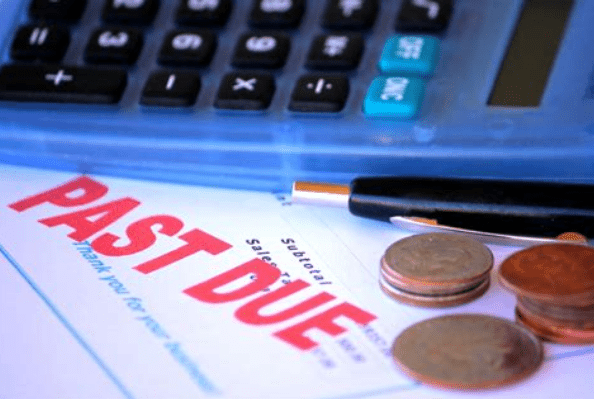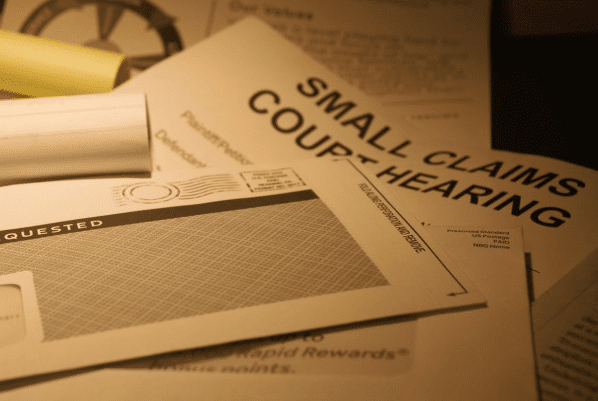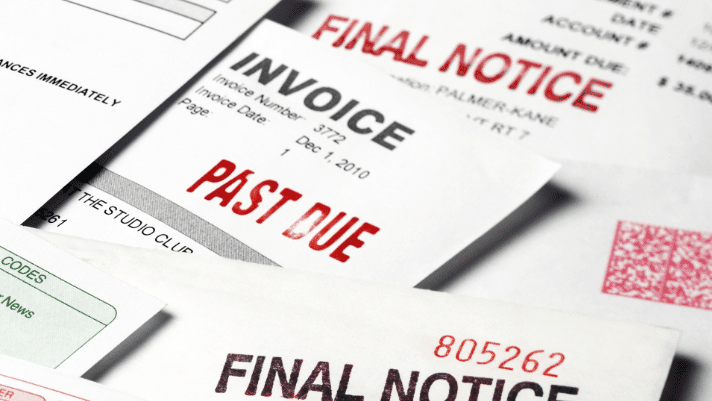If you’re facing a debt lawsuit in West Virginia, it’s essential to act swiftly. You have a 20-day window to craft and file a written Answer in response to the allegations. Your Answer should address each claim made against you and assert any affirmative defenses you may have. After preparing your Answer, ensure you file it with the court and send a copy to the opposing attorney. ZumaZip offers assistance at every stage of this process, helping you navigate the legal requirements with ease.
It’s fair to say that life today is already pretty stressful. Finding out that you’re being sued for debt collection may feel like more than you can handle on top of everything else.
If you’re already struggling to make ends meet, chances are there isn’t any extra money available to hire an attorney. It can be intimidating to think about responding on your own and all too tempting to just ignore it altogether. Ignoring it, however, won’t make it go away. All that does is guarantee that you will lose the case.
Responding to a debt collection lawsuit in West Virginia on your own doesn’t have to be scary or overwhelming. In this article, we will walk you through the process and hopefully make it a little easier. This article will include information specific to West Virginia, including state-specific deadlines, forms, and laws.
Table of Contents
- Deadlines
- Steps to Respond
- What is ZumaZip?
- Statute of Limitations in West Virginia
- West Virginia Legal Aid Organizations
- Key Takeaways
- Guides for Other States
Respond to the lawsuit before the West Virginia deadline
You have 20 days to respond to a debt collection lawsuit in West Virginia. The clock starts on this legal action as of the filing date on the Summons and Complaint that you receive. It’s your responsibility to respond to the lawsuit before the deadline.
Need more assurance? Here’s what the law specifically states, as outlined in West Virginia’s Rules of Civil of Procedure Rule 12(a)(1):
“A defendant shall serve an answer within 20 days after the service of the summons, unless before the expiration of that period the defendant files with the court and serves on the plaintiff a notice that the defendant has a bona fide defense, and then an answer shall be served within 30 days after the defendant was served.”
A debt collection lawsuit begins when the plaintiff (the party trying to collect the debt) files and serves a Summons and Complaint against the defendant (the person being sued.) In most debt collection lawsuits, the plaintiff is your creditor or a third-party debt collection company who purchased the debt from your original creditor, like NCC debt collection. If you’re being sued for debt, you are the defendant in the case.
It is very important to make sure that your response is filed in the Court before this deadline expires. If you fail to respond before the deadline, the plaintiff will ask the Court for a default judgment.
With a default judgment, creditors and debt collectors are entitled to use legal methods to collect the debt from you. This means you’ve lost your opportunity to refute any of the allegations they claimed against you (such as the amount of the debt or the opportunity to agree to a payment plan) and that they can use this court order to garnish your wages.
With a wage-order garnishment they can take money out of your paycheck before you even see it. A garnishment can also allow debt collection from your West Virginia state tax return, either instead of or in addition to your paycheck. Chances are high that this will result in a worse financial situation than where you started.
Obviously we want to avoid this scenario. The single best thing you can do to protect yourself in a debt collection lawsuit is to make certain that you file a response before the 20-day deadline expires. In this article, we will walk you through exactly how to do it.
West Virginia Answer to Summons Forms
You can use the ZumaZip Answer form to respond to your West Virginia debt collection lawsuit. After you answer a few online questions about your situation, ZumaZip’s software translates your answers into the proper legalese and format to file with the court on your behalf.
Alternatively, you can use the Magistrate Court Answer form if you prefer to fill out your Answer alone and your case is in Magistrate Court. The Magistrate Court has jurisdiction over civil cases like debt collection where the financial amount in dispute is less than ten-thousand dollars. If the debt exceeds ten-thousand dollars, your case will be filed in Circuit Court. The West Virginia Circuit Court, unfortunately, does not offer an online form, so you will need to draft and format your own response according to local court rules, which we will go over below.
Luckily, as the defendant, figuring out which court is appropriate for your case isn’t something that you need to determine. That responsibility is on the filing party, the plaintiff. This means that, in terms of your response, you can simply rely on the court information already listed in your Summons and Complaint.
Answer filing fees for West Virginia
Good news! West Virginia courts do not charge a fee to file an Answer to a debt lawsuit. That being said, there may be fees to file other types of documents of legal actions into a case. You can check for other court filing fees here: West Virginia Court Fees.
Use these steps to respond to a debt collection lawsuit in West Virginia
As discussed above, a West Virginia debt collection lawsuit begins when the plaintiff files a Summons and Complaint against you. As the defendant, you must respond to the lawsuit before the deadline, which is 20 days in West Virginia.
To respond to your debt lawsuit in West Virginia, you need to file a written Answer. Follow these three steps:
- Answer each issue listed in the Complaint.
- Assert affirmative defenses.
- File your Answer with the court, and send a copy to the plaintiff’s attorney.
We will go over each step in the process in detail below.
1. Answer each issue listed in the Complaint
To effectively respond to the Complaint in your debt lawsuit in West Virginia, it’s crucial to address each allegation individually and in the correct order.
If your case is in Magistrate Court, you can utilize the online form provided by the West Virginia Court system. This form simplifies the process by consolidating your responses into three check-boxes: admitting, denying, or admitting in part and denying in part the allegations. Typically, you would select the third option, acknowledging certain details while disputing others, such as the amount of the debt.
However, if your case is in Circuit Court, you’ll need to draft your own Answer. This involves responding to each numbered paragraph in the Complaint separately. Your responses can fall into one of three categories:
- Admit
- Deny
- Deny due to lack of knowledge
ZumaZip makes it easy to respond the right way.
You should be certain that your responses are numbered the same as the allegations against you, for easy reference. The third response is appropriate for matters you cannot independently verify, such as incorporation information about the plaintiff’s company.
2. Assert affirmative defenses
In your Answer you can also assert any relevant affirmative defenses. An affirmative defense is any reason that you can state which shows that the plaintiff doesn’t have a case. Feel free to include each and every affirmative defense that applies to your situation.
If you are using the online form you can check the box next to “raising defense(s) explained below” and use the additional space to flesh out your defense. If you are in Circuit Court you can set for all affirmative defenses following your responses to the allegations in the Complaint.
With ZumaZip you can make the right affirmative defenses the right way.
Some of the more common affirmative defenses are briefly discussed below, but this is not an exhaustive list.
- Payment: If you can prove that you already paid the debt then that should end the lawsuit immediately.
- Accord and satisfaction: If you came to an agreement with the creditor to pay a lesser amount to satisfy the debt in full satisfaction, they, or an entity on their behalf cannot continue to try to collect. Here you can reference and attach any supporting documentation such as bank records showing a cashed check or online payment, or any correspondence between you and the creditor regarding a lower payment.
- The debt was already discharged in a bankruptcy. If you have an order of discharge from a previous bankruptcy which included this debt, then the plaintiff cannot try to collect it through the Court.
- Statute of limitations has expired. A statute of limitations is a law that sets a deadline for legal action. We will discuss the West Virginia statute of limitations on debt collection in more detail later in this article.
Beyond affirmative defenses you can also assert counterclaims against the plaintiff. There is a section for this in the online form as well. This is most appropriate if they are violating West Virginia debt collection laws. West Virginia follows the federal Fair Debt Collection Practices Act and goes beyond it with its own fair debt collections practices act in West Virginia, called the West Virginia Consumer Credit and Protection Act (WVCCPA.)
The WVCCPA allows consumers to make the debt collector pay for their reasonable attorney fees and court costs, and could even force criminal charges for willful violation. Please keep in mind that credit harassment allegations can get very complicated and would be best handled by an attorney. Additionally (or alternatively) you can take the opportunity to file a complaint against a debt collection company here with the West Virginia Attorney General complaint form.
3. File your Answer with the court, and send a copy to the plaintiff’s attorney
Your final step is to print out and file your response with the Court. Make sure to file your Answer with the Court within the 20 day timeframe.
Here’s all you need to do to file your answer.
- Print at least two copies of your Answer
- Mail one copy to the court
- Mail the other copy to the plaintiff’s attorney
If possible, print an extra copy for your own records. If you’re using the Magistrate Court’s online form make sure to fill out the “Certificate of Service” portion at the end of the form.
Why ZumaZip?
ZumaZip makes it easy to fight debt collectors.
You can use ZumaZip to respond to a debt lawsuit, to send letters to collectors, and even to settle a debt.
ZumaZip’s Answer service is a step-by-step web-app that asks you all the necessary questions to complete your Answer. Upon completion, we’ll have an attorney review your document and we’ll file it for you.
Statute of Limitations on Debt in West Virginia
The statute of limitations sets a deadline for debt collectors to sue over a debt. Each state has different statutes, but in West Virginia, the statute of limitations on debt is ten years, generally. More specifically, W.V. Code § 55-2-6 states:
“Every action to recover money, which is founded upon an award, or on any contract other than a judgment or recognizance, shall be brought within the following number of years next after the right to bring the same shall have accrued, that is to say: If the case be upon an indemnifying bond taken under any statute, or upon a bond of an executor, administrator or guardian, curator, committee, sheriff or deputy sheriff, clerk or deputy clerk, or any other fiduciary or public officer, within ten years; if it be upon any other contract in writing under seal, within ten years; if it be upon an award, or upon a contract in writing, signed by the party to be charged thereby, or by his agent, but not under seal, within ten years; and if it be upon any other contract, express or implied, within five years, unless it be an action by one party against his copartner for a settlement of the partnership accounts, or upon accounts concerning the trade or merchandise between merchant and merchant, their factors or servants, where the action of account would lie, in either of which cases the action may be brought until the expiration of five years from a cessation of the dealings in which they are interested together, but not after.”
In West Virginia, the statute of limitations on debt is generally ten years. This means that for various types of debts, such as credit card debt, mortgage debt, and student loan debt, creditors have a ten-year window to pursue legal action. However, for debts stemming from express or implied contracts, the statute of limitations is shorter, set at five years in West Virginia.
Once this statutory period expires, creditors are legally barred from continuing collection efforts through the court system. Below is a breakdown of the statute of limitations on different types of debt in West Virginia:
| Debt Type | Deadline |
|---|---|
| Oral contract | 5 years |
| Open contract | 5 years |
| Auto Loan | 10 years |
| Mortgage | 10 years |
| Written contract | 10 years |
| Credit card | 10 years |
| Medical | 10 years |
| Judgment | 10 years |
| Findlaw |
West Virginia Legal Aid Organizations
All states have legal aid organizations, some of which are government-funded, to assist residents who cannot otherwise afford legal assistance. There are links below to some of these organizations in West Virginia:
- Legal Aid of West Virginia
- Legal Aid of West Virginia Consumer Self-Help Resources
- State of West Virginia Veterans Assistance
- West Virginia Senior Legal Aid
West Virginia Court Locations
Need help finding your courthouse? Use this map of West Virginia Court Locations to find your court’s address, clerk information, and more. Just click on your county of residence.
Key Takeaways
So, in short, here’s the review on how to answer a summons for debt collection in West Virginia.
Make certain you know the deadline and complete the process before it expires. West Virginia debt collection regulations allow 20 days to file your response.
Make certain you are using the proper West Virginia Answer form/format, or ZumaZip.com, to draft your response. When you fill out the form complete the following three steps:
- Answer each issue in the complaint.
- Assert any and all of your affirmative defenses.
- File and serve the Answer with the Court and the plaintiff’s attorney.
What is ZumaZip?
ZumaZip is a convenient solution designed to streamline your response to a debt collection lawsuit. Here’s a breakdown of what you can expect when you use ZumaZip:
Firstly, you’ll access our user-friendly web application, which guides you through the process step by step. You’ll be prompted to answer a series of questions related to your specific situation. Once you’ve completed the questionnaire, you have the option to either print out the finalized forms and mail them to the appropriate courts yourself, or you can opt to utilize ZumaZip’s services to file them on your behalf. Additionally, if you choose this option, an attorney will review your document for added peace of mind.
If you’re seeking guidance on how to effectively respond to a debt collection lawsuit, ZumaZip can provide the assistance you need. Feel free to explore our FAQs for more information on what ZumaZip has to offer.
What if I haven’t been sued yet?
If you’ve only received a collections notice, but not a lawsuit, the best way to respond is with a Debt Validation Letter. When a debt collector contacts you in any way, whether it’s by phone or mail, you can respond by formally requesting a debt validation with a Debt Validation Letter . This letter notifies the collector that you dispute the debt and forces them to provide proof you owe the debt. They can’t call you or continue collecting until they provide validation of the debt. This flowchart shows how you can use a Debt Validation Letter to win.
Get started with a Debt Validation Letter here.
How to Answer a Summons for debt collection in all 50 states
Here’s a list of guides on how to respond to a debt collection lawsuit in each state:
- Alabama
- Alaska
- Arizona
- Arkansas
- California
- Colorado
- Connecticut
- Delaware
- Florida
- Georgia
- Hawaii
- Idaho
- Illinois
- Indiana
- Iowa
- Kansas
- Kentucky
- Louisiana
- Maine
- Maryland
- Massachusetts
- Michigan
- Minnesota
- Mississippi
- Missouri
- Montana
- Nebraska
- Nevada
- New Hampshire
- New Jersey
- New Mexico
- New York
- North Carolina
- North Dakota
- Ohio
- Oklahoma
- Oregon
- Pennsylvania
- Rhode Island
- South Carolina
- South Dakota
- Tennessee
- Texas
- Utah
- Vermont; Vermont (Small Claims court)
- Virginia
- Washington
- West Virginia
- Wisconsin
- Wyoming
Guides on how to beat every debt collector
Hey there! Facing off against a debt collector can feel like a daunting challenge, but fear not! We’re here to help you navigate through it all with our handy guides designed to assist you in beating every debt collector you encounter. Whether you’re facing a new lawsuit or dealing with a persistent collector, we’ve got your back. Stay positive, stay informed, and let’s tackle this together!
- Absolute Resolutions Investments LLC
- Accredited Collection Services
- Alliance One
- Amcol Clmbia
- American Recovery Service
- Asset Acceptance LLC
- Asset Recovery Solutions
- Associated Credit Services
- Autovest LLC
- Cach LLC
- Cavalry SPV I LLC
- Cerastes LLC
- Colinfobur
- Covington Credit
- Crown Asset Management
- CTC Debt Collector
- Cypress Financial Recoveries
- Delanor Kemper & Associates
- Eagle Loan of Ohio
- Educap
- Estate Information Services
- FIA Card Services
- Forster & Garbus
- Freshview Solutions
- Fulton Friedman & Gullace LLP
- Harvest Credit Management
- Howard Lee Schiff
- Hudson & Keyse LLC
- Integras Capital Recovery LLC
- Javitch Block
- Jefferson Capital Systems LLC
- LVNV Funding
- Mannbracken
- Mariner Finance
- Medicredit
- Michael J Adams PC
- Michael J Scott
- Midland Funding LLC
- Mullooly, Jeffrey, Rooney & Flynn
- Mountain Land Collections
- MRS Associates
- National Collegiate Trust
- Nationstar Foreclosure
- Northstar Capital Acquisition
- NCEP LLC
- NRC Collection Agency
- OneMain Financial
- Palisades Collection LLC
- Pallida LLC
- Paragon Revenue Group
- Pinnacle Collections Agency
- PMAB LLC
- Portfolio Recovery Associates
- Provest Law
- PYOD LLC
- Reunion Student Loan Finance Corporation
- Revenue Group
- Regents and Associates
- RSIEH
- Salander Enterprises LLC
- Second Round Sub LLC
- Security Credit Services
- Sherman Financial Group
- Suttell and Hammer
- T-Mobile
- Transworld Systems
- Tulsa Teachers Credit Union
- UCB Collection
- Velo Law Office
- Velocity Investments
- Waypoint Resource Group
- Weinberg and Associates
- Wolpoff & Abramson
Settle your medical debt
Having a health challenge is stressful, but dealing medical debt on top of it is overwhelming. Here are some resources on how to manage medical debt.
- Am I Responsible for My Spouse’s Medical Debt?
- Do I Need a Lawyer for Medical Bills?
- Do I Need a Lawyer to Fight Medical Bill Debt?
- Does Bankruptcy Clear Medical Debt?
- How Much Do Collection Agencies Pay for Medical Debt?
- How to Find Medical Debt Forgiveness Programs
- Is There a Statute of Limitations on Medical Bills?
- Medical Debt Statute of Limitations by State
- Summoned to Court for Medical Bills — What Do I Do?
- Summoned to Court for Medical Bills? What to Do Next
Stop calls from Debt Collectors
Do you keep getting calls from an unknown number, only to realize that it’s a debt collector on the other line? If you’ve been called by any of the following numbers, chances are you have collectors coming after you, and we’ll tell you how to stop them.

































